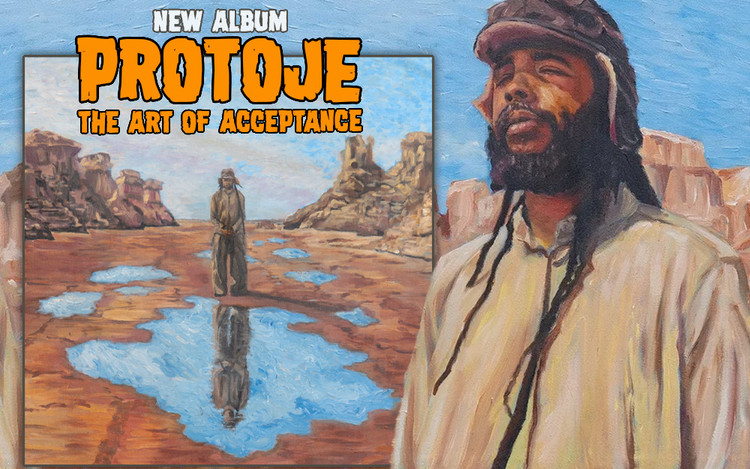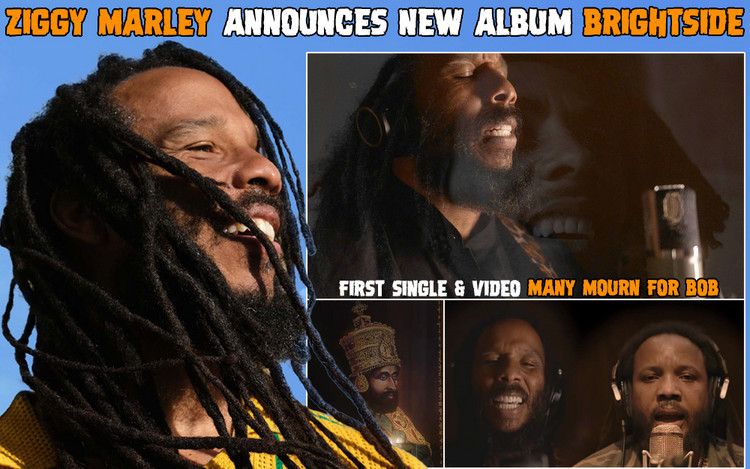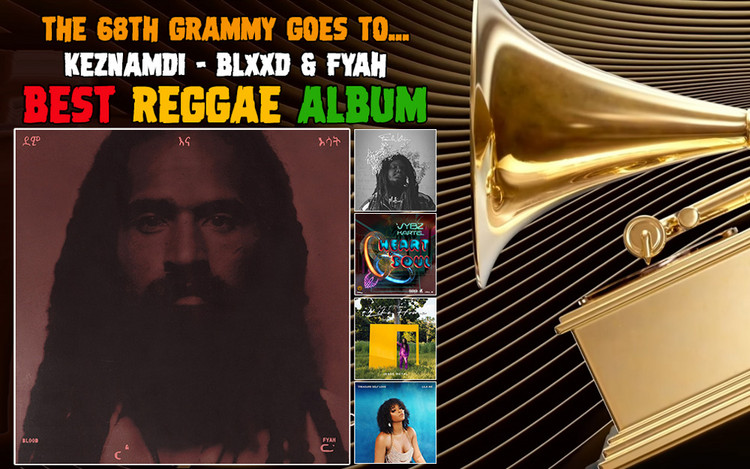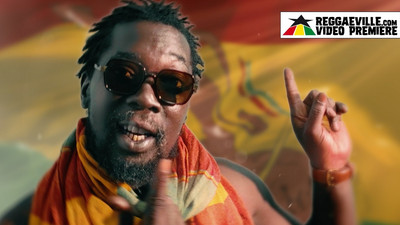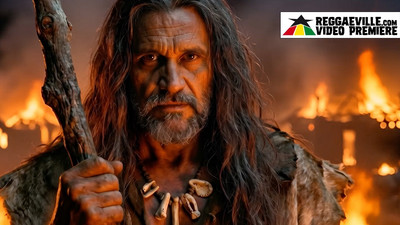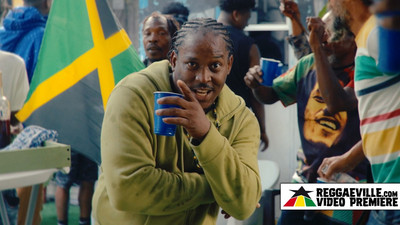Cimarons ADD
Cimarons Interview Part II - Meeting Bob Marley, Lee 'Scratch' Perry & Lineup Changes
07/14/2025 by Angus Taylor
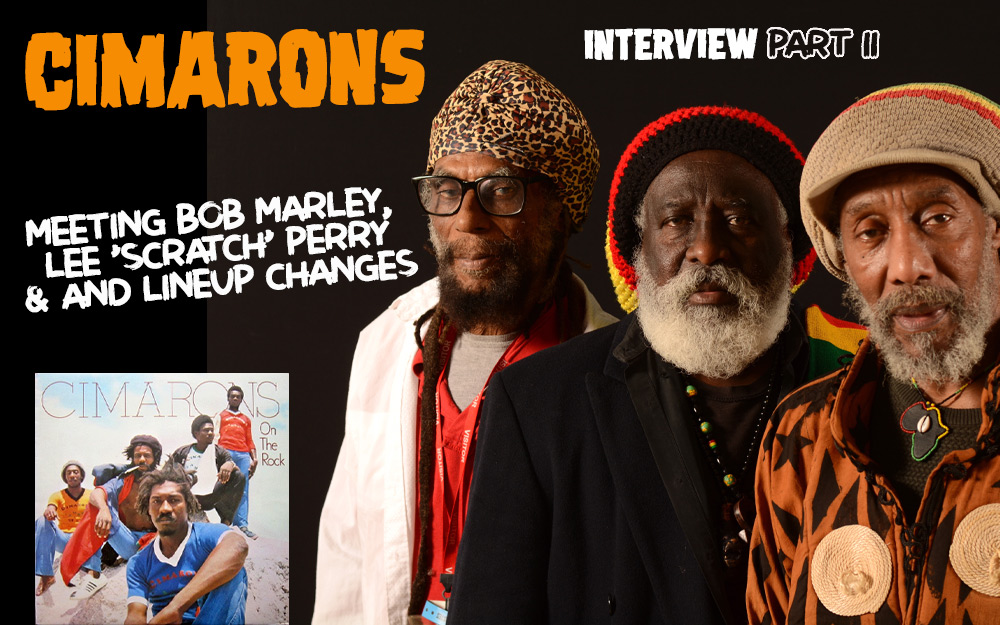
In Part II of our epic interview with Locksley Gichie and Michael Arkk of Cimarons, they recall how Gichie inspired the lead guitar on the Wailers’ Concrete Jungle, and the group nearly played on Max Romeo’s War In A Babylon album. They also confirm laying the rhythms for Jackie Paris’ Make Me Smile, and Soul Messengers’ Do It Til You’re Satisfied, and clear up why their version of War’s Slippin Into Darkness got credited to Carl Bradney and Scratch.
Tell me about the famous filming in 1973 at the Edinburgh Festival. Was that just before Winston Reedy joined at that point?
Locksley Gichie: Probably that was the last show that Carl Bert did with us. It's funny that, because we weren't briefed, you know? We just did one rehearsal. Winston Groovy was all right and the Marvels. We used to work with them on a regular basis. But with Dennis Alcapone that was the first time we backed him live. And Nicky Thomas. It's amazing because we weren't briefed. We did not know. After we did the rehearsal we jumped into a van and they said “There is a concert in Edinburgh”. We had no idea it was live or TV! And even when we were on stage playing we didn't know it was being taken live. Can you imagine that? We weren't briefed. Nobody told us nothing. All we knew is we were doing a concert. No one told us they were filming the damn thing!
And it was a strange kind of cage in front of the audience!
Locksley Gichie: Yes, it was strange! They didn't brief us. It came through Trojan that show there. We do a rehearsal and then you guys go to Edinburgh for the weekend and blah blah blah. Nothing about TV or live. But it was good.
It was very good. The Dennis Alcapone Cassius Clay and the Nicky Thomas Is It Because I’m Black.
Locksley Gichie: Yeah man, it stole the show.
You mentioned that in the second part of the Africa tour you were billed as the Soul Messengers. Did you ever record as the Soul Messengers? Because I've got a 1974 record by the Soul Messengers that's a cover of BT Express Do It Til You’re Satisfied. Did you play on that?
Locksley Gichie: No, but we used to do it on stage. Sings “Do it, do it, do it til you're satisfied”.
So who made that record?
Locksley Gichie: I don't know. They use the name. But there was a recording I think. Carl Bert. I think we did it with Carl Bert. (Sings it again) We did a soul version for Pama Records.
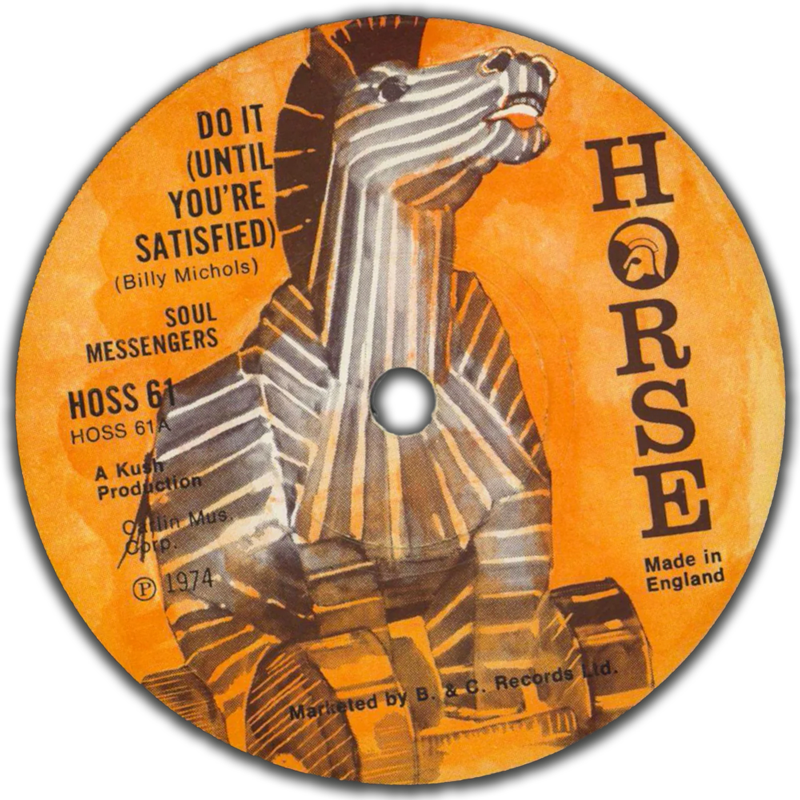
This was a reggae version. I'm going to play it to you now.
Locksley Gichie: I think we did, you know? With Soul Messengers name.
(Plays tune on phone) LISTEN HERE
Locksley Gichie: Oh yeah! Carl Bert. No, it's Winston! As Soul Messengers? Winston. I forgot all about it! (laughs)
Michael Arkk: So that was Soul Messengers before you became Cimarons?
Locksley Gichie: No, it was after. It was just a bogus name.
I've got another one for you. A record came out in 1975 credited to Carl Bradney, a cover of War Slippin Into Darkness. But it was reissued recently as Carl Bert and Cimarons. When it came out it's credited as a Lee Perry production.
Locksley Gichie: Yeah. It wasn't for Lee Perry but I think it was for Clement Bushay. Clement Bushey was the producer and actually it was Carl Bert and Bobby Davis Dego. So they both sang together. It was Bobby Davis Dego and Carl Bert. They did Slippin Into Darkness. LISTEN HERE
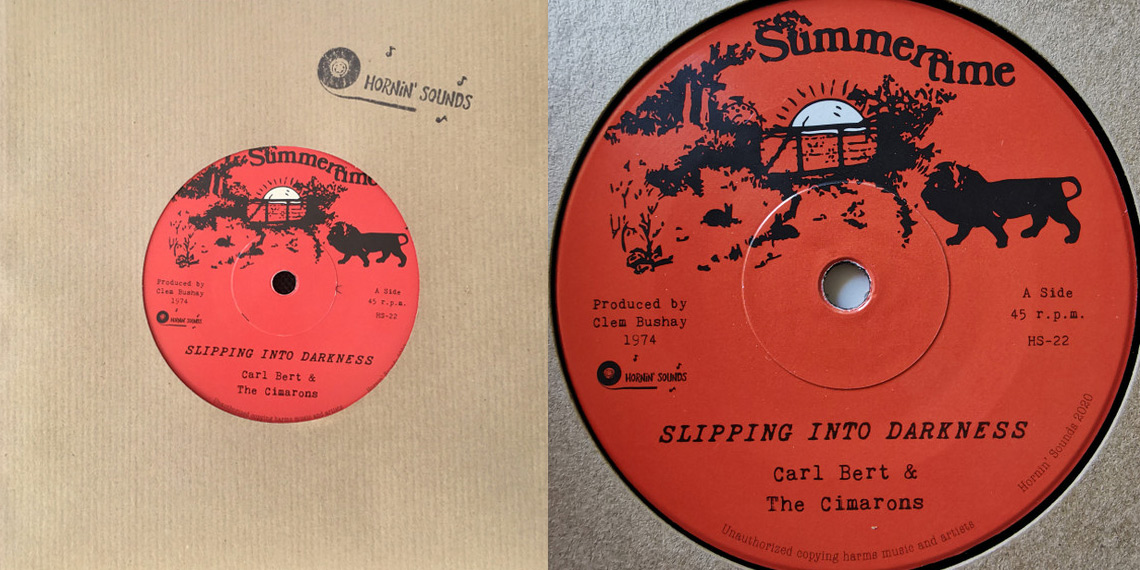
And that was recorded for Clement Bushay in England?
Locksley Gichie: Yeah, in Chalk Farm Studio.
So how come it came out as Carl Bradney and Lee Scratch Perry production?
Locksley Gichie: Bogus. Alias. Because I think Clement Bushay used to work with and was very close to Scratch. So when they recorded it probably it was Scratch that paid for the recording session. So they used his name on it. But that was Bobby Dego and Carl Bert.
I just want to go back to another tune from the Trojan days that people mention. When it gets played people love it. We Are Not The Same from 1974.
Locksley Gichie: Oh yeah. That was Carl Bert you know? An original song. It came out on Trojan. That was a big song you know? We should do it over, Michael Arkk. We should cover it.
Michael Arkk: We never rehearsed it. But I was practising it.
Locksley Gichie: That was Carl Bert. Carl was very good. He was a very good songwriter.
So what about your 1973 cover of the Royal Guardsmen’s Snoopy Vs The Red Baron. Which you recorded as the Hot Shots.
Locksley Gichie: So what happened was there was Clive Crawley. He was a producer. He had his own record label. He called us to do some tracks for him. I think it was done in Morgan Studio. Do you remember Morgan Studio in Willesden? He came with the song Snoopy Vs The Red Baron. And it's funny because the first time we played it, we were trying to settle, we were just feeling it out. (Sings melody) So we did the recording. After we recorded it we said “Ok, run the tape”. And he says to us “That's it, it's finished!” (Laughs) One take. And to us it was just feeling out. We were just getting to feel it out. And when we went through it and said “Run the tape, now good to go” he said “That's it guys it's finished!” And it was a big hit.
It was a big hit but in an interview with Dave Simpson for Uncut you said that you didn't get invited to play it on Top Of The Pops? What happened there?
Locksley Gichie: No, I don't know. In those days you had a lot of studio groups. The producer could carry us in and then give them a name. But he was the sole owner. He paid us for the session and that was it.
So they used a different band on Top Of The Pops?
Locksley Gichie: They probably just used the BBC studio band.
So did you watch Top Of The Pops and see a white band playing your song?
Locksley Gichie: Yeah, I saw it on Top Of The Pops. But the good job with Clive Crawley was every time he had an interview on TV he used to call Cimarons. He used to big us up.
PIC
But you did get to go on Top Of The Pops with Ken Boothe in 1974.
Locksley Gichie: We did Top Of The Pops with Ken Boothe about ten times. We lost count! They called Cimarons when they wanted a backing band. They did Everything I Own.
But you didn't play on the recording of Everything I Own. That was done in Jamaica.
Locksley Gichie: That was done in Jamaica. Lloyd Charmers produced it. The first time we backed Ken Boothe in the Lyceum Ballroom. Everything I Own we couldn't stop playing it! It was the only song we did all night. The people went wild! And the Lyceum was a big place. The Lyceum was a massive place. You know that was a hit because the whole audience was singing Everything I Own. For half an hour. Couldn't stop. The following weekend straight to number one. It was top.
Michael Arkk: Everybody went out and got a copy.
Locksley Gichie: You know it's a hit song when the audience reacts that way to it. You know it's a hit song. It can't miss.
We need to talk about your experiences with Bob Marley. I did a very long interview with Delroy Washington for Reggaeville where he told his side of it.
Locksley Gichie: Bob Marley was like a dream come true. Because from school days I used to have this part-time job. Next door to a record shop. And I used to go Thursday, Friday, Saturday. And I saw Bob Marley come out with Simmer Down. About 1964? And that record blew my mind. (Sings Simmer Down) That blew me sky high. And then come 1972 we were in rehearsal and Delroy Washington came in with this brother. Very short guy with a big afro. Afro days! And he stood there in the corner when we rehearsed the song. We didn't stop, we just kept on playing. And he just stood there and didn't say a word. And Delroy said “Is Bob Marley you know?” And we said “Where, where?” (laughs) And that was Bob Marley! And I said “Bob, what happen?” and I shook his hand. And he said to us “The man, them sound good, you know? You know any of my songs?” And Cimarons any song we liked we used to rehearse it. And we started with Duppy Conqueror. And Bob couldn't believe it! He said “What? Me can't believe it, man! What other songs do you know?” And we did Soul Rebel. That was it! (laughs)
So then you played some concerts?
Locksley Gichie: Yeah, because he said he was in England with Johnny Nash. He wanted to do a couple of live shows here.
They were living in Bloomsbury and then Bayswater.
Locksley Gichie: Yeah. So we did a couple of rehearsals with him and Johnny Nash. And we did the Apollo Club. Johnny Nash and Ken Boothe and Bob Marley. And it went good, man! Wow! And then we did Mr B's Club in Peckham. And that was crazy, man. People couldn't believe it because people didn't know Bob was in the country. And Bob was up on stage. Crazy! And then we did the Bamboo Club in Bristol. And that was crazy as well. We did two nights Saturday and Sunday. Sunday night Bob did about four songs and he couldn't come off stage. He came off and they lifted him up! And put him back on! (laughs) He did two more songs and he said “No, no” and walked off and they said “No, no” and lifted him up. (laughs)
We only did three shows, you know? And then we used to hang out with him. Down by his flat. Smoking and drinking and thing. We had some good moments with him down there. And me and Bob became very very close now. We used to speak a lot and exchange ideas. I said “Bob, you love James Brown, innit?” And he started laughing because he uses a few James Brown phrases in his voice. And then we started rehearsing with him and doing other things and this was the same time he got the deal with Island Records. He wanted to do a tour and he went home to Jamaica and he brought back Bunny, Peter and Familyman.
And they lived in that house in Neasden where they put the plaque up in 2012.
Locksley Gichie: Yeah. And we were rehearsing to do some shows. But then Bunny and Peter weren't happy. They didn't like the scene. But we used to do a lot of rehearsals. Because at one time Frank was rehearsing with Johnny Nash. Playing bass for him. I used to be with Familyman and Carly. So Bob was experimenting. He was using both drummers. He was using Maurice and Carly in rehearsal. And then one day we were just messing around on Concrete Jungle. And I was into rock. Santana. So on Concrete Jungle we started doing some licks. (Sings Concrete Jungle lead line from Catch A Fire). Bob went crazy! Because we used to talk in the night. And he says to me “Gichie, I want a sound. I don't want to copy nobody. I want a sound that nobody has. I want my own sound". But he couldn't explain that it was actually the blues, rock and roll and jazz mixed together. With that sustain. (Sings sustained guitar note). Bob heard me playing Concrete Jungle and he went mad. He said “Bloodclot! Gichie, you a genius, you know? That's the sound that I hear in my head, you know?”
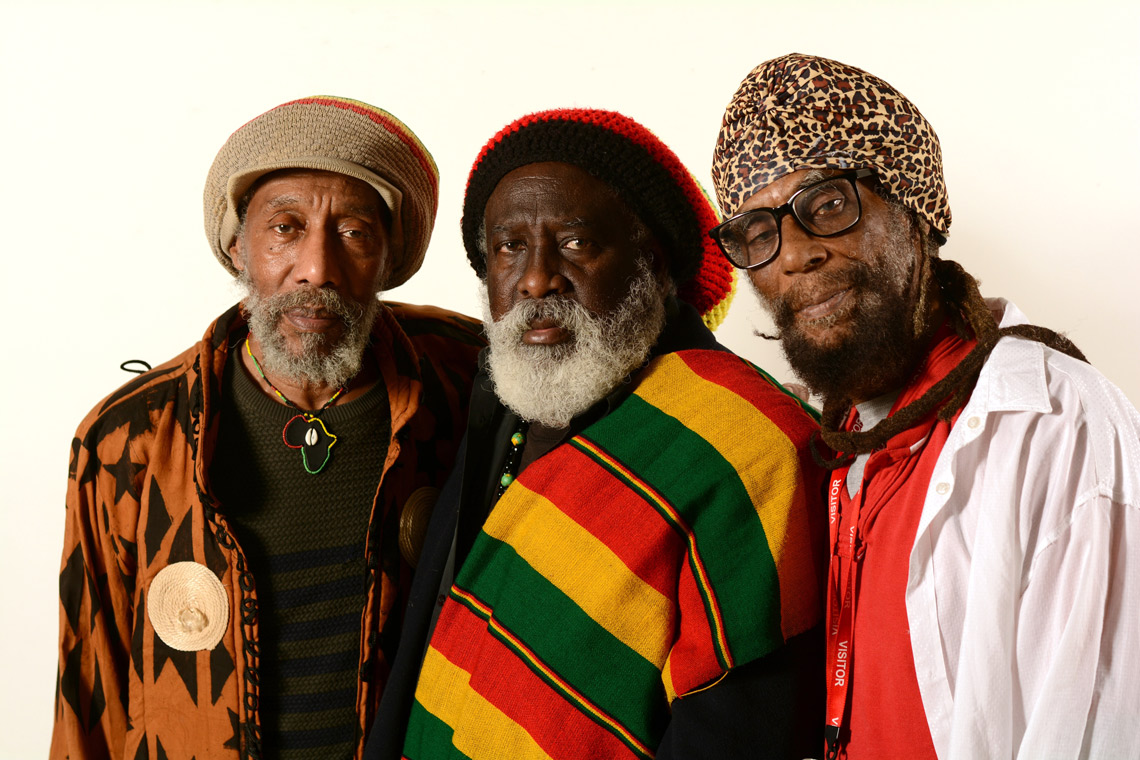
And that's the sound that ended up on the UK mix of the Catch A Fire album.
Locksley Gichie: When he got the deal with Island Records, he came back from Jamaica with the raw mix. Just the raw sound. He phoned me one Saturday evening. He said “Gichie, grab the guitar and come in the studio now, Ladbroke Grove.” So I grabbed my guitar and I went down to the studio.
And he was rushing. He said “That guitar you were playing on Concrete Jungle, play it now for me”. It's over one year ago! And I'm thinking “What do I play?” (laughs) Because it's just a feel. You just get inspired. And I forgot what it was. I was just feeling out trying to get back in. I wasn't relaxed. And he got upset. “No man! What happened?” I was saying “Bob, it was a long time ago. I'm trying to remember”. I would have got it right but I needed more time. But anyway he got upset and we had a big argument between me and him. And I got pissed off and I left. He was carrying on too bad. “Bomboclat” and all this.
Didn't you say in the documentary that he wanted you to join the band?
Locksley Gichie: Yeah, that was after now. That was after. Because what happened was he fell in love with me and Levy. He wanted Cimarons rhythm section. He comes and says “Levy, Gichie, we're going to America next month and I want you guys to come with me”. And I said “Bob, it just can't work, you know? Cimarons is my baby. I can't abandon Cimarons, you know?” And he kept on. He didn't give up. “Come America with me". I said “No Bob, I can't do that man”. Anyway he went to America without us and that's when he brought in Al Anderson.
Who had that rock sound.
Locksley Gichie: Yeah, yeah. The guy he used in England was a white brother. I can't remember his name now. And what that guy did was he added something extra to it. He brought in the Hawaiian guitar.
Wayne Perkins. Using the slide.
Locksley Gichie: Yes! I didn't meet him but he was a brilliant musician. He brought in the Hawaiian guitar. (sings) But it was my idea. And then he went and got Al Anderson. It's in the movie. You've seen the movie? My idea. He didn't call my name at all! (laughs) And that was that you know? After Catch A Fire just after he did Burnin’ album. And I'm in Carnival walking around and I hear this voice calling me “Gichie!” And the guy is so short I look around and I can't see nobody! “Gichie, Gichie!” Can't see nobody. And he got closer and it's Bob! And it was good, man, and we have a good talk because it's been about a year. And we talked about I Shot the Sheriff. He said he wasn't happy with the way Carly played the drum on I Shot The Sheriff. He said there was a drum roll that he didn't like. I said “No, Bob man, that sound good man!” He said “Are you sure?” I said “It sounds good”. I said to Bob “You made some good tracks in the past in those early recordings you did. And you should do them again”. And he said “You're right now. It's true, you know?” And he went away and he did them over again. The first one he did was One Love. And he did five or six redo's.
He redid Bend Down Low, Sun Is Shining…
Locksley Gichie: Yes and Rock My Boat. I told him to go and re-record them again. And he said “Gichie, it's true, you know?” And he went over and did that. And again, Bob didn't give me no credit! (laughs)
You mentioned in the documentary that Bob suggested doing Talking Blues.
Locksley Gichie: It was the same time as when he called me about Burnin’ and thing. It was the same day. The same day Bob said to me “Gichie, you guys are always covering other people songs. How come you never do over my songs?” I said “It's true, you know, Bob”. He said “Yeah man. You've got to do over one of my songs too, man”. And we said “Ok Bob, we'll think about it!” (laughs) It's so funny Talking Blues, it wasn't planned. We were at Chalk Farm Studio one Saturday evening. And it was meant to be Jackie [Robinson] from The Pioneers doing a solo album. Producing it himself. And it was Syd Bucknor, the engineer, and the session started at 3 o’clock. We go to the studio, set up ready to go. One hour, no Jackie. Two hours, no Jackie! Three hours no Jackie!
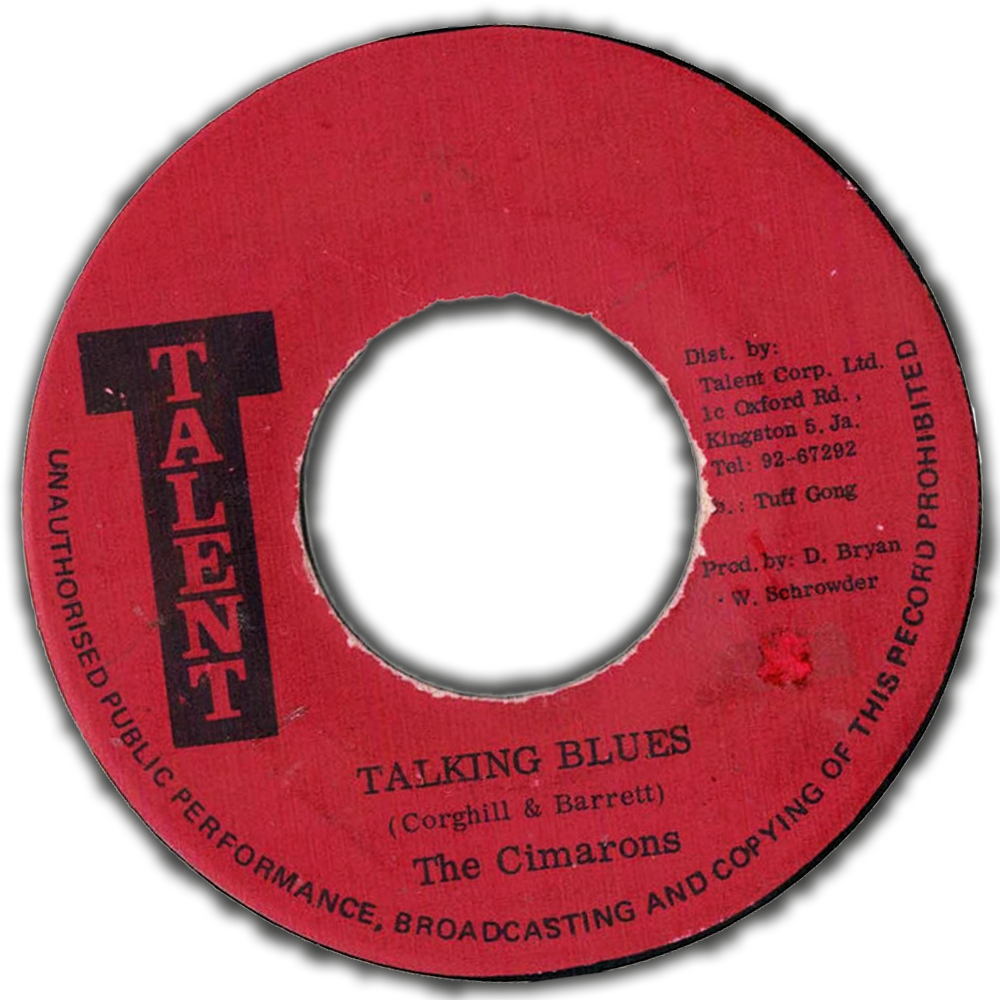
And Syd Bucknor now says “Fellas, I'm giving you half an hour. If he doesn't turn up in half an hour's time I'm going home". Syd Bucknor says to us “Cimarons, there is a tape here and there is enough space for one track. For us to do a recording”. We rehearsed Talking Blues to include it in our live show. So we said “What can we do?” We were thinking. And I said “Oh, let us do Talking Blues”. And we said “Sydney, run tape”. One take! And Sydney said “That's all right, okay”. And went home. There was a guide voice on it. About a week after we were in Japan. And Tommy Cowan from the Jamaicans would come to England every now and then. And he was just checking Webster [Shrowder of Trojan] to see what music he could use. And he went through all the tapes and he went through all the songs them. And he didn't find nothing he liked. And the very last song he came to was Talking Blues. I wasn't there but I heard the story. When he heard it, he said "Who is that?” Webster said “No man, it's Cimarons”. But Tommy says “That sound good, man”. And he says that he wants it. So we revised it and we put the harmonies on it and that was it. Tommy Cowan heard what he could do with that song.
So we're in Japan when we heard that it was number one. We did a Pat Kelly tour in the UK. And after the Ken Boothe we ended up in Japan with the Pioneers we got a phone call from Jamaica. “Cimarons! You’re number one in Jamaica!” “What you talking about, number one?” I put the phone down. About a week later he phoned back and says “No, no, you guys are number one in Jamaica. You've got to leave Japan now and come to Jamaica". So we had to leave, you know? Japan tour was so good and we were enjoying it. Because the people love reggae music so much in Japan. They love it man. They loved Cimarons. So we left Japan and came to England and Jamaica. We just missed out because when we arrived in Jamaica the Talking Blues was coming down. It was number 10! And people thought it was Bob Marley at first. And in Jamaica it wasn't called Talking Blues. It was called Cold Ground. (laughs) But it did well. We did well. We did a couple of tours there. And I remember the first show we did was at the Ward Theatre. In Kingston. And I grew up as a little youth listening to the radio on Christmas Day…
They used to have a Christmas concert there.
Locksley Gichie: And it used to play on the radio! My mind was blown because I'm thinking “Wow, as a youth I used to listen to these people on the radio and now I'm here”. And we started off (sings intro to Talking Blues) and the crowd reacted! It's a lynching mob! (laughs)
We did a show in Kingston at a club called the Turntable Club. And Turntable Club was like no smoking and that was a regulation. We did a concert there and oh gosh the place did fall apart and the backstage was pure ganja smoke! (laughs) Big Youth was there and Big Youth said "Boy, me love Cimarons now because it's the first time I get to smoke a spliff in Turntable Club!”
Tell me about recording your 1976 second album On The Rock in Jamaica.
Locksley Gichie: Yeah at Channel One. The majority of the songs were recorded there. And we did the voice over at Randy's.
So the riddims were laid at Channel One?
Locksley Gichie: Yeah, and then we went over to Perry and Lee Perry drew us in. He said “You can come and work on your record in my studio”. So we did Greedy Man and Paul Bogle. He was good to work with. A very good man to work with.
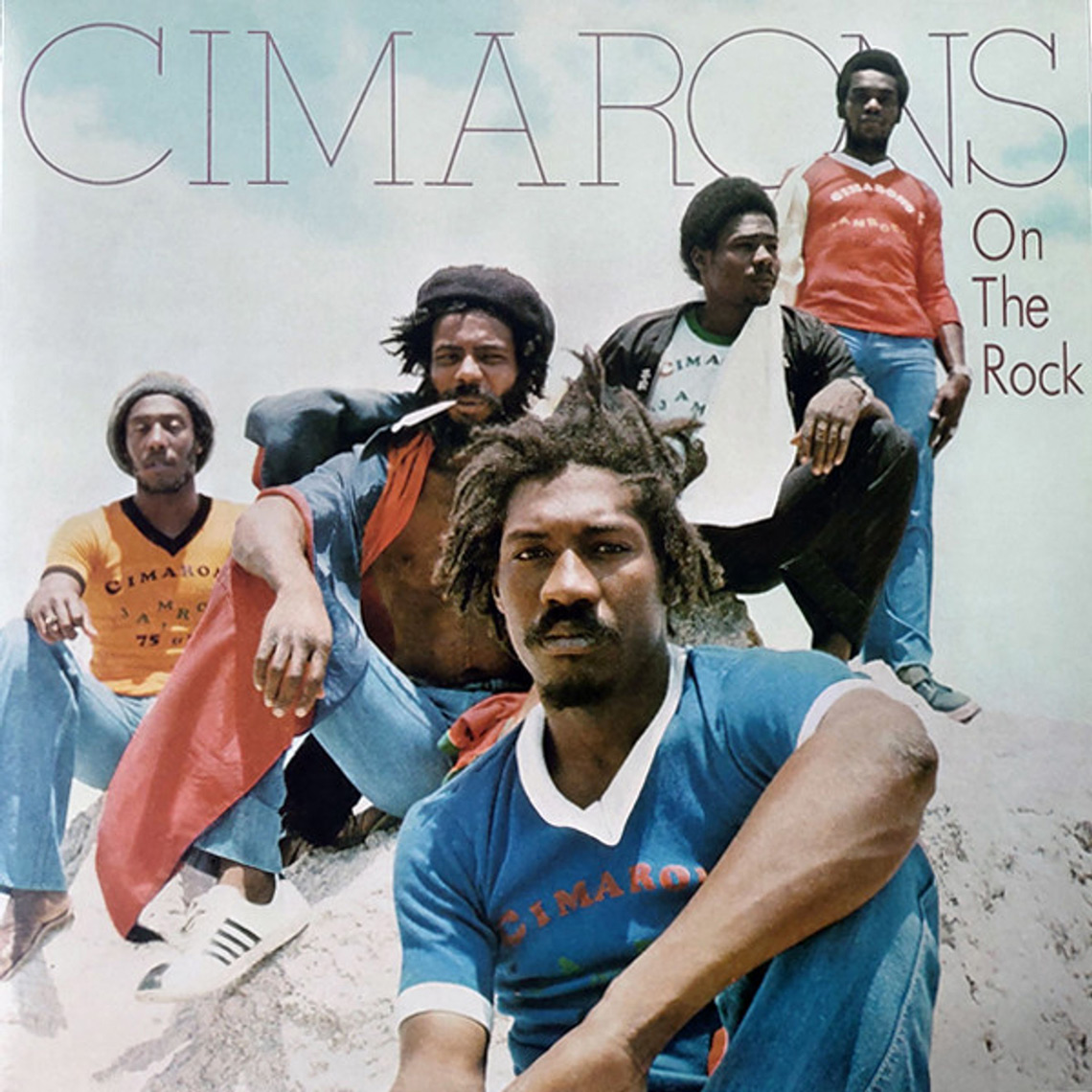
So what was the difference between working at Channel One, Randy's, and with Scratch in the Black Ark?
Locksley Gichie: Channel One was just right, you know? Because it had a vibes. Similar to Chalk Farm. It had that same feel and sound.
And what was it like working with Scratch? He was a very communicative producer.
Locksley Gichie: It was the best man. Scratch was so laid back, you know? He would say “Bassie just hold the bass like this so. And just ease in”. (laughs) And when he gets in the control room there was some weird dancing! He loves it man. And it's funny you know? He wanted us to do War In A Babylon with Max Romeo. He came for us one Saturday evening and said “Come Cimarons, come record with Max Romeo". But we couldn't find Frank! Couldn't find Frank nowhere! Levy didn't want to do it for some reason. Levy was a bit reluctant. “No boss, we don't give nobody Cimarons sound". That was Levy. But if Frank was there we would have done it. Carry over Levy or say “Stay man”. He would have had to come. Imagine Cimarons doing that with Max Romeo. Oh my gosh! Massive!
I wanted to play you another track because I interviewed Jackie Paris in Jamaica. He did this tune called Make Me Smile. He'd had a stroke so his memory wasn't so good and it took a long time for him to remember but he told me he thought that you guys played on it. It's not a big famous tune, it's a collector's tune. But he said there was an English group that played on it and I called some names and he said “Cimarons, that's the one”.
(Plays track) LISTEN HERE
Locksley Gichie: Yeah, yeah, that's Cimarons. I recognise it already. This is probably the first time I'm hearing it since we recorded it. Because the mouth organ, the harmonica, he was very good and he wanted to be a part of Cimarons as well.
Was that recorded in England?
Locksley Gichie: Yeah, yeah, Chalk Farm Studio.
So then Winston Riley took that rhythm to Jamaica?
Locksley Gichie: Yeah, to remix the thing. I recognised the picking guitar. Probably the first time I'm hearing this since I recorded it.
We were talking about the rock thing. And you mention in the documentary about the 1978 Maka album had a rock influence.
Locksley Gichie: Yes, because Frank had this thing about the rock thing. Franklyn used to love the distortion sound. And when we started doing the In Time album one or two tracks like People Say (sings distorted guitar). And then we did the Maka album now. It was the experiment now because the Maka there were just so many different effects pedals on the market and you could experiment with them. And we came with some immaculate sound that a lot of people are using now. With Maka we experimented. Because we did say that Maka was ahead of its time. It was too advanced for the reggae audience.
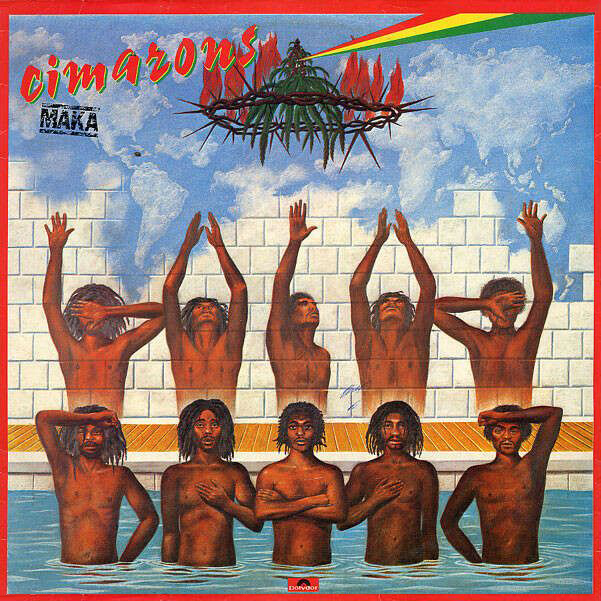
A lot of reggae fans feel a way about the rock thing coming into the reggae.
Locksley Gichie: it worked for Bob. The idea came from me! (laughs) Mixing the rock with the reggae.
You talk in the documentary about how people kind of looked on the UK reggae scene as secondary to Jamaica. But you'd had hits in Jamaica. Some of the next wave of bands were big in the UK and internationally but you'd had a number one in Jamaica.
Locksley Gichie: It's funny because for some reason some people in England were fighting the music that was recorded here. They go “Ah, English reggae, English reggae! Commercial!” We'd get a big fight, you know? Would get a big fight because people like Rodigan wouldn't play our record. People like Tony Williams wouldn't play Cimarons. It's a long, long time after long, long years after that we did an interview with Rodigan. And we played live. We were talking like we're talking now and we're going play live and Rodigan couldn't believe it! He said “You guys have been around a long time and I never knew you guys were so good”. (Laughs)
And it's funny enough that they fight the reggae music in England. And even if you look in the top 20 chart the majority of records were made in England. Even at number one for weeks you had Winston Reedy. Winston Reedy had number ones for eight weeks in England. With Dim The Light. Eight weeks! And it was recorded in England. But some people had this thing about English reggae. They'd fight English reggae. “Commercial”. And even now you hear certain people still around. But it's just music. It's music.
And Sly and Robbie used to appreciate that. Because when we did Live At The Roundhouse, Sly and Robbie were there in the audience. And they were blown to bits! And they said what they loved about Cimarons is they can see why we played so fast. You come to England and you can see why you play so fast. Because it's the audience. It's the audience reacting fast. They said everyone started doing fast instead of laid back. So they realised why Cimarons played so fast! (laughs)
Because English people find it easier to dance to a fast beat! Like in the skinhead times!
Locksley Gichie: I agree with that, yeah!
Tell me more about Dim The Light. Because Cimarons did a version of Dim The Light and then Winston did a version solo.
Locksley Gichie: We did a version in Jamaica. We recorded Dim The Light in Jamaica. And it was meant to be a single, you know? It didn't kick off as a single, for some reason it didn't happen.
Just timing.
Locksley Gichie: Yeah, timing. And then Winston did a cover and that was it! But even today people love the Cimarons version.
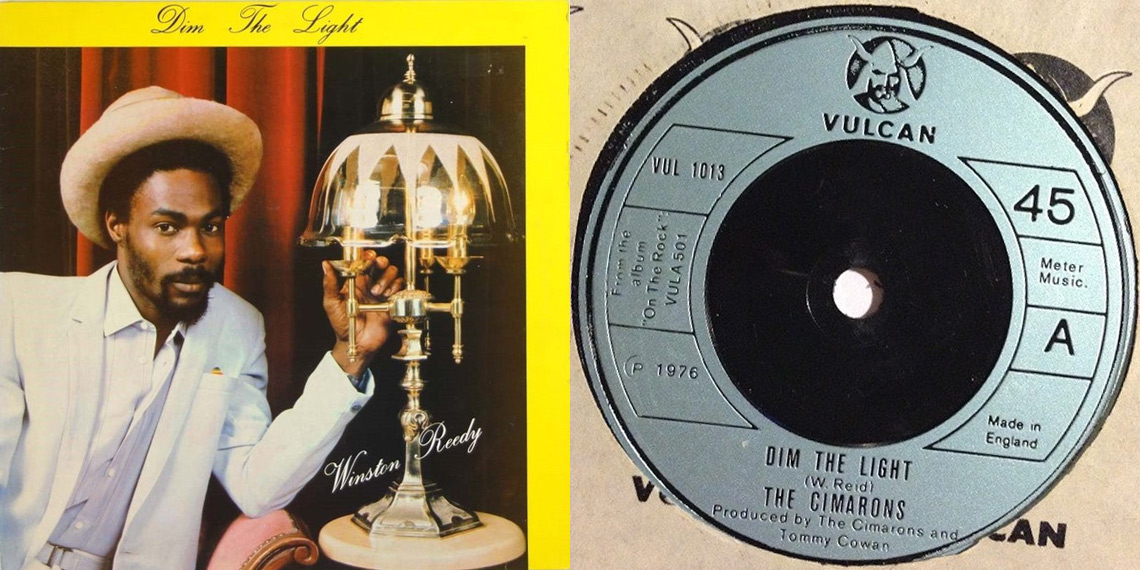
Another person I've interviewed from Harlesden apart from Delroy was Ijahman Levi. Did you ever interact much with him? Because he came over around the same time you did.
Locksley Gichie: No. It's funny enough, I knew him very well, you know? IJahman Levi used to live just around the corner from me. I knew him from early school days. But he was always a show-off. He's cocky. He didn't want to have nothing to do with Cimarons for some reason. He never approached us to do no live gigs. He never approached us to do any live recordings. But we are good friends.
Didn't he do some of his early sessions with Jah Bunny? Wasn't Jah Bunny part of Cimarons at one point?
Locksley Gichie: Yes, Jah Bunny and Sonny Binns. That was after Levy left. And then Maurice got pissed off. There was no money making and Maurice just didn't want to know. He just threw music out the door. He didn't want to know nothing about music and he was finished with it. He wanted to sell his drums. So we brought in Sonny Binns and Jah Bunny to fill the gap. And we did a couple of live shows and they ended up doing a couple of tracks on the Freedom Street album, about three or four.
Funnily enough that was the last time Winston worked with us, you know? After the Freedom Street album Winston said goodbye. Bertie [Grant] the producer came up with the rhythm Daughter Of Zion and while we were touring in France, Bertie was the sound engineer. And every time we had a sound check he was always playing the rhythm track. Sings ”Stay with me for the end of time”. Every time in the sound check Bertie would play that track. Just the instrumental. And after we came back from France next thing I know about a month after - big tune! Big, big tune Daughter Of Zion! Number one! And that was it. Winston said goodbye. He said it was time to move on as a solo artist.
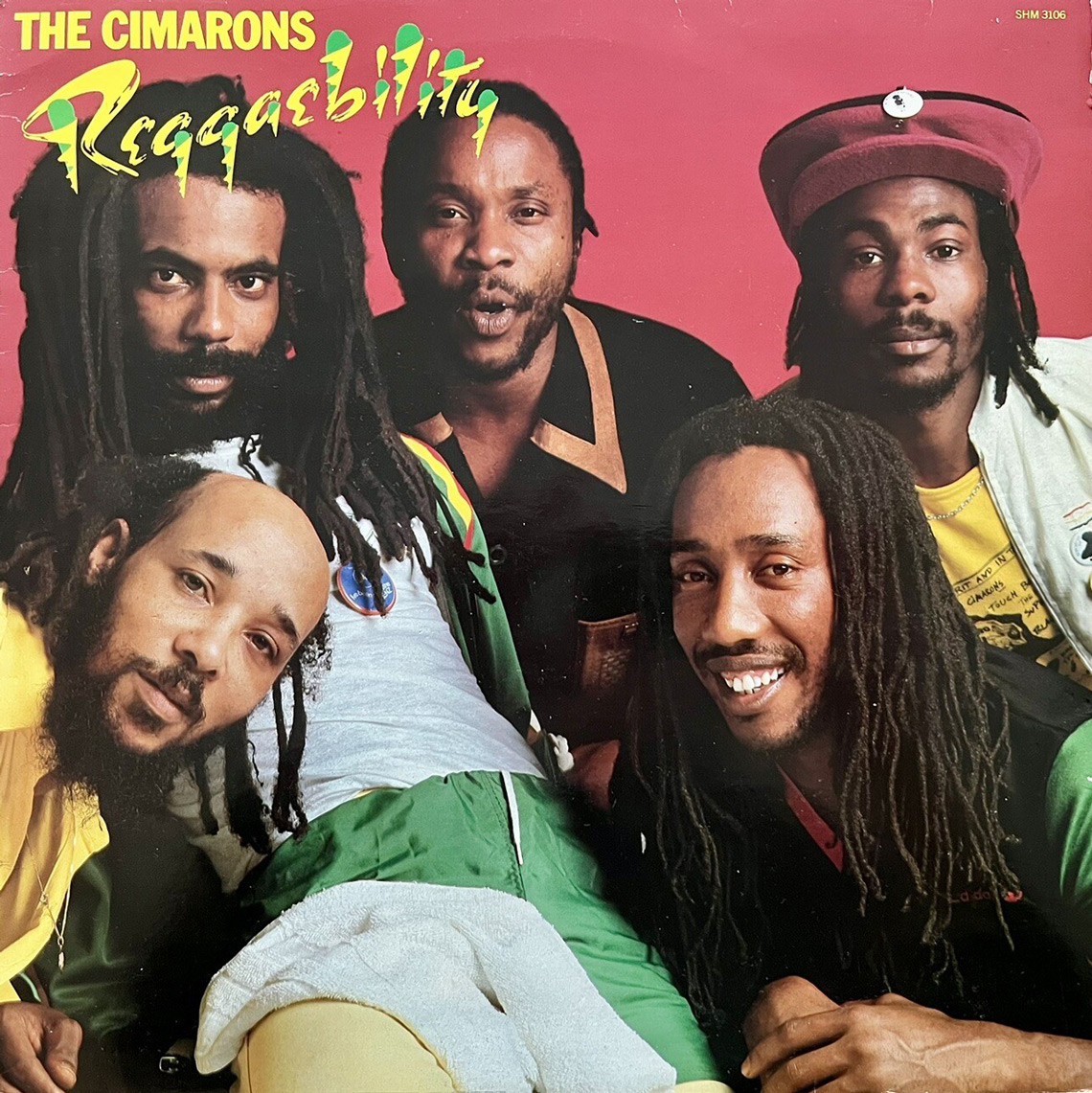
But that was when Jah Bunny and Sonny Binns used to work with us. But that time was shaky. It wasn't the same anymore. The energy and vibe wasn't there. Sonny was good, Sonny was a brilliant musician. Because on the Reggaebility album, the synthesiser had just come on the market. And he was one of the first ones in reggae who knew the synthesiser. And he went crazy! He could come up with sounds! If you listen to Reggaebility you can hear different sounds. Crazy man! He went mad, man! He got so many different sounds from the thing! Sonny Binns went crazy, man.




